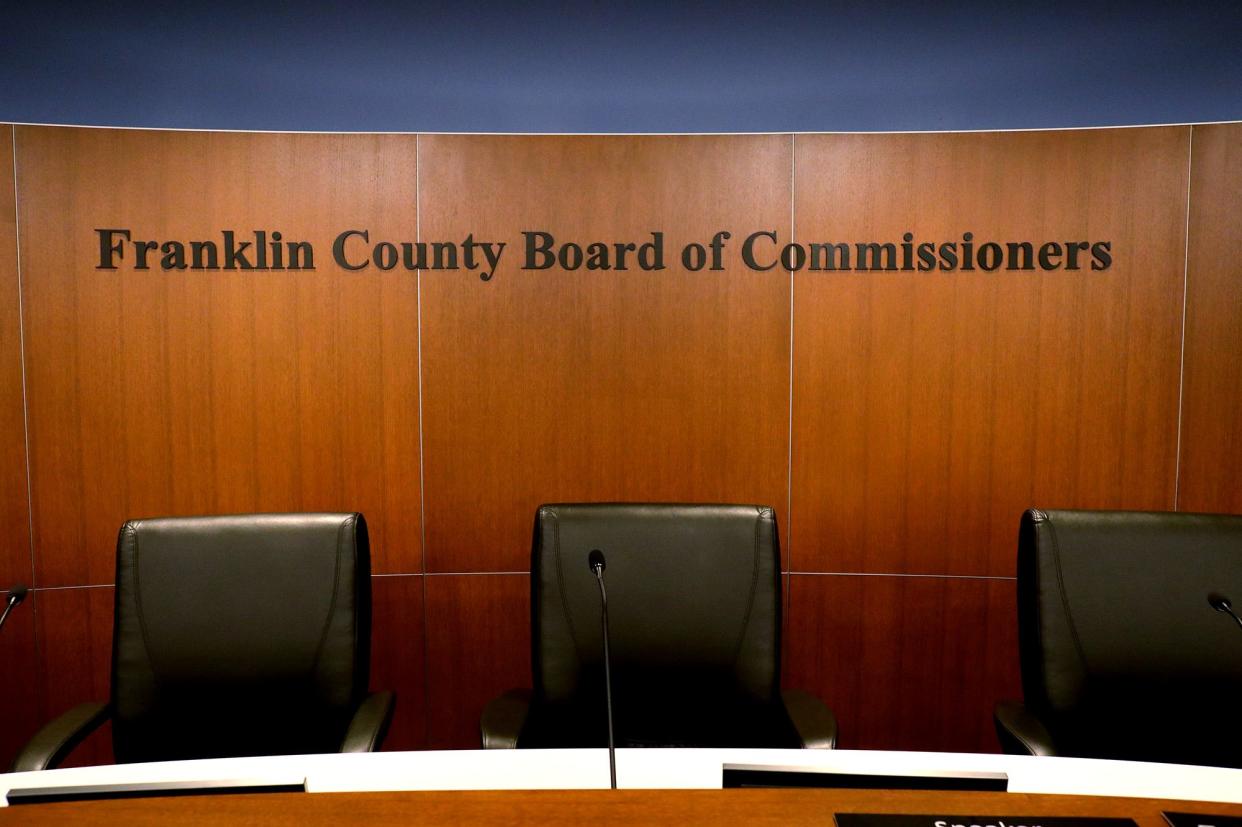County property-tax revenues to surge close to 30% on reappraisals

Franklin County's proposed 2024 budget, which is being introduced Thursday, projects revenues for next year will be firing on all cylinders.
Revenue from sales taxes, investment earnings and a "conservative" estimate of a 27% increase in county property tax revenues from the new reappraisal will combine to boost the general fund budget by 3.4%, to just under $660 million.
The county's total budget, which includes special revenue of another $1.52 billion from sources such as special levies for specific agencies, state and federal grants, licensing fees and other funding streams, will reach $2.18 billion, up 5.2% year over year.
The county will use its strong position to increase funding in strategic ways, particularly targeting issues such as domestic violence, hunger, water pollution and arson prosecution, officials said.
Like the city of Columbus, Franklin County gets its property tax collections from "inside millage" levied against any nonabated real estate. The Ohio Constitution allows local governmental units to levy up to 10 inside mills without voter approval, and those mills don't get "reduced" as property values grow with inflation.
The county will maintain "unallocated fund balances," or excess revenue, "in excess of 40%, which puts us in line with other triple-A counties as far as bond ratings are concerned," Franklin County Administrator Kenneth Wilson said. He said that is expected to keep the county at the highest possible AAA rating among bond agencies, placing it above the federal government with one ratings agency.
Franklin County could receive up to 2.35 mills of the 10-mill limit countywide, splitting the rest with varying school districts, cities and villages, depending on where a parcel is located. Not every jurisdiction has maxed out the 10 mills, and the county elects to charge property owners only 1.47 mills of its unvoted allotment, or about 63%, a county spokesman said.
Unlike voted millage, which is "reduced" as property values rise, unvoted millage delivers real tax collection increases when real estate appraisals determine values have risen — and the Franklin County Auditor's Office reappraisal taking effect in January is one for the record books: up 41% on average.
The county is conservatively projecting a 27% increase in property tax collections — after the dust has settled on any appraisal challenges — pushing its total take up $15 million to about $70 million, or about 11% of general fund revenue.
Voted millage dedicated to certain county agencies, like Children Services and the Alcohol, Drug and Mental Health Board, will contribute another $491 million in property taxes to the county's total spending plan, a 1% increase above 2023. While that millage goes down when real estate appraisals on average go up, new nonabated construction provides the net gain year-over-year.
Sales tax, which makes up about 60% of the the county's general fund revenue, is projected to grow 1.5% to $399.1 million. Those collections have rebounded strongly from the COVID economic collapse, and now are the highest on record, after logging previous collections of:
$313 million in 2019
$308 million in 2020
$353 million in 2021
$389 million in 2022
$393 million in 2023 (projected)
Investment earnings on the county's cash reserves are expected to drop next year from $44 million to $34.5 million. Despite the drop, that's still $20 million higher than 2022.
"It's a rise in the interest rate environment" that is generating cash on the county's reserves, Franklin County Administrator Kenneth Wilson said.
Those reserves are estimated to be about $260.3 million at the start of next year just in the general fund, including an $85 million "rainy day" contingency fund, the budget shows.
"The Federal Reserve has been increasing interest rates over time as a hedge against trying to control inflation, so we've benefitted from that," Wilson said.
"We're going to begin to see over the next several years that impact scaled down as we're required to" before a deadline at the end of 2024 that the federal COVID grants must be spent, Wilson said. Total revenue will drop 4% next year as a result of those one-time grants ending, while new federal dollars would go out to numerous social-service programs, including an additional $4 million for those dealing with domestic violence and food insecurity, he said.
Areas that would see increased funding under the proposal, which still must undergo hearings and approval by the three-member elected county Board of Commissioners, would be an additional arson prosecutor, two attorneys in the "Special Victims Units" that handles cases involving crimes such as sexual assault, child pornography or human trafficking.
The budget would support 27 new positions in the Sheriff's Office to dedicated to supporting diversity in hiring and employee retention, "because we really have to change our strategy and cast a broader net," Wilson said.
Wilson is recommending putting $5 million in general-fund dollars toward various water and sewer projects aimed at getting about 120 houses off septic systems and onto centralized sewage-treatment systems, and $1 million to get existing septic systems compliant with discharge limits. In 2020 the county entered into a settlement agreement with the Ohio Environmental Protection Agency requiring installation of sanitary-sewer connections to homes in various neighborhoods, submit a plan to the state on how it would improve neighborhoods that were financially impractical to connect, and work with townships on Stormwater Pollution Prevention Plans.
The commissioners are expected to vote on the plan December 12.
wbush@gannett.com
@ReporterBush
This article originally appeared on The Columbus Dispatch: County finances looking flush for 2024

